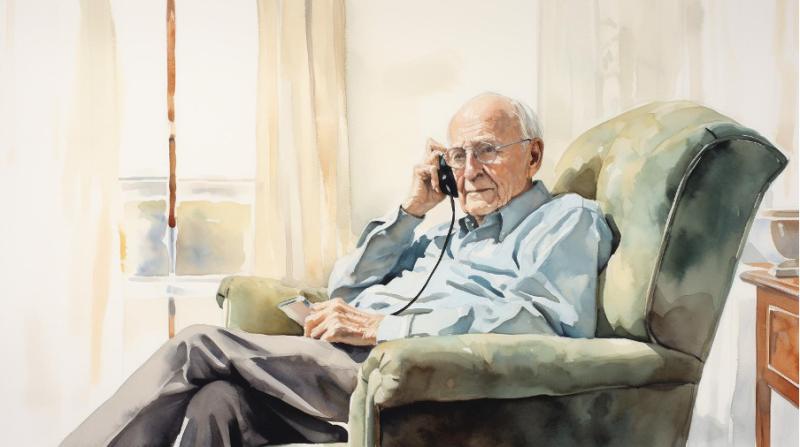Overcoming the Challenges of Long-Distance Caregiving

Caring for an elderly loved one presents a unique set of challenges when distance separates you. Whether due to job requirements, cross-country moves, or other life circumstances, long-distance caregiving is becoming increasingly common. This article will explore various strategies and resources long-distance caregivers can utilize to ensure that their loved ones receive the best possible care even from afar.
Understanding the Impact of Distance
Being a distance away from a family member in need can induce feelings of guilt, helplessness, and anxiety. However, with proper planning and access to resources, caregivers can bridge the gap effectively.
Developing a Care Plan
A comprehensive care plan includes assessing the senior's needs, determining the level of care required, and identifying preferences for managing their daily activities. Structuring such a plan from a distance necessitates reliable local support, whether through family, friends, or professional services.
Leveraging Technology
While this article will not delve into the specifics of monitoring apps and communication tools, which are well-discussed in PrimeCarers' "Remote Elderly Care" guide, we recognize technology as crucial in overseeing care from a distance. E-health services, telemedicine, and digital platforms serve as valuable touchpoints between caregivers, seniors, and health professionals.
Facilitating Regular Communication
The cornerstone of long-distance caregiving is maintaining open lines of communication:
- Regular phone or video calls not only combat isolation but also allow caregivers to check in on a loved one’s well-being.
- Scheduled family meetings, including the senior and all individuals involved in their care, help in coordinating efforts and keeping everyone informed.
Coordinating Local Support
Identifying and coordinating with local networks is pivotal. Exploring options such as:
- Community senior services.
- Volunteer organizations.
- Meal delivery programs.
- Locally-based carers on platforms like PrimeCarers.
These resources can provide invaluable assistance on the ground.
Embracing Respite Care
Long-term caregiving is a marathon, not a sprint. Hence, implementing respite care arrangements is beneficial. Enlisting the help of local caregivers for short-term relief can prevent burnout and ensure continuity of care.
Navigating the Legal Landscape
One key aspect often overlooked is the legal considerations inherent to caregiving – something that becomes even more complex with distance. Securing powers of attorney, understanding healthcare directives, and ensuring all legal documents are in order protects both the caregiver’s and the senior’s interests.
Financial Management and Resources
Managing a loved one’s finances remotely can be daunting, but it is often a necessary component of caregiving. From setting up direct bill pay to understanding insurance benefits, caregivers must navigate these waters delicately and with proper legal authorization.
Accessing Professional Home Care
While avoiding duplicate discussion of the valuable tips provided by PrimeCarers on finding appropriate home care support, it’s worth noting the importance of vetting and working closely with professional caregivers to ensure they mesh well with your loved one's personality and needs.
Adapting the Living Environment
A safe and accessible home environment is critical for seniors, especially when living alone. Long-distance caregivers can take steps to arrange for home modifications and safety checks to reduce the risk of falls and accidents.
Making In-Person Visits Count
When visits are infrequent, making the most out of face-to-face time is crucial. These visits can be used for:
- Conducting a home safety assessment.
- Attending medical appointments together.
- Updating plans and discussing changes.
Harnessing the Power of Advocacy
Caregivers must become skilled advocates for their loved ones. This means knowing the right questions to ask medical professionals, understanding treatment plans, and ensuring that the senior’s voice is heard in all matters affecting their care.
Planning for Emergencies
Having a robust emergency plan is imperative. This includes:
- Setting up local emergency contacts.
- Outlining steps for different scenarios.
- Educating the senior on how to get help if needed.
Nurturing Emotional Connections
Physical care is only part of the equation. Ensuring emotional support is in place can sustain seniors through the loneliness that often comes with aging. This might involve:
- Encouraging social activities, whether virtual or in-person.
- Creating a network of friends or neighbors for regular check-ins.
- Being attentive to signs of depression or emotional distress.
Encouraging Independence and Autonomy
Fostering a senior’s independence is beneficial for their self-esteem and general well-being. Caregivers can encourage this by:
- Supporting the use of assistive devices that promote independence.
- Respecting their choices and preferences.
- Encouraging them to stay active and involved in their care decisions.
Conclusion
Long-distance caregiving is a testament to the strength of familial bonds, transcending physical barriers to provide care and comfort. While there are challenges, the right combination of technology, local support, and professional assistance can form a solid foundation for taking care of a loved one from afar.
Caregivers should remember to also care for themselves, utilizing resources and support networks to manage the stress and emotional toll that can come with this role. It's not about being perfect; it's about being present, involved, and proactive in ensuring the safety and happiness of those we hold dear.
Though distance may separate you, with preparation, dedication, and the support available through services like those coordinated by PrimeCarers, it’s more than possible to provide your aging loved ones with the care and affection they deserve.
For more insights on ensuring the best care from a distance, explore how technology and local support can come together in the comprehensive guide to Remote Elderly Care, provided by trusted professionals on the PrimeCarers platform.
More to Read:
Previous Posts:











